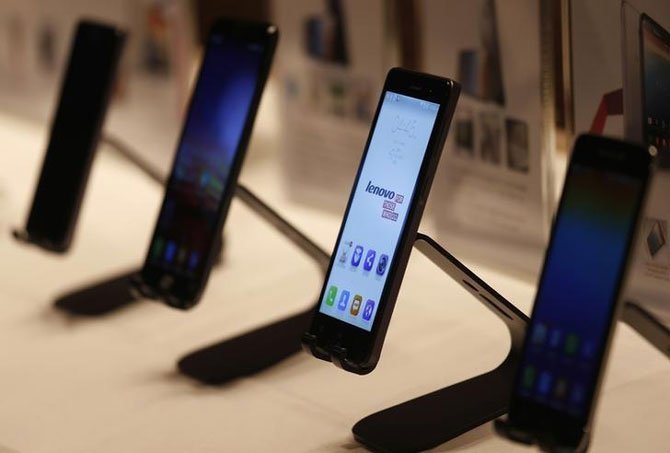

With the sale of smartphones failing to reach the desired level in the first half of this year, handset makers are banking on the coming festive season to gain traction.
According to sector estimates, about 70 new smartphones could be launched in the festive season, which begins end-September and goes on till the end of the year. Of these, 50 new handsets could be launched by November.
Apart from new launches, increasing the pitch of promotion and attractive offers would also be used to attract consumers.
Lenovo, for example, has nine new models for the season. Brands such as Mi (from Xiaomi) and Samsung have already enhanced their portfolio with back-to-back launches in the past few months.
“Across our portfolio we are introducing products ranging from Rs 6,700 to Rs 34,000 ($100-500) that cater to specific needs of consumers,” said a Lenovo India spokesperson.
He added: “Due to regulations for the online guys, they will not be able to discount products. Hence, it will not be about price-offs, but more about enabling affordability. Largely, the focus from our end is to excite customers with our products and value propositions.”
After a spectacular show last year, when the smartphone market clocked 103 million units in shipment, sale this year was expected to cross 130 million units.
But, data from the first half of the year show only 52 million smartphones have been shipped – falling grossly behind the target.
“While, the sales of smartphones pick up during July to November every year, the shortfall is so huge that it is unlikely the target would be met this year,” an industry executive said.
This makes the second half of the year even more important for the companies to gather momentum.
According to Faisal Kawoosa, lead, telecom and semitronics practices, Cybermedia Reasearch, since firms had not been very successful in converting feature phone users to smartphones, this festive season would be important to upgrade smartphone users in the country to drive sales.
“The numbers smartphones shipped during the July-September period is expected to pick up, as most firms operating in India, unlike the US or Europe, get more traction during the September-November period,” Kawoosa said.
“The festive season is the peak time for all brands to be active,” said Keshav Bansal, director, Intex Technologies.
He added: “We are also coming up with a campaign, starting 20 September. There are Tie-ups with popular apps such as Saavn, Mydala, Nazara, eTravelSmart, Viu, ChillX and TrendMicro, will further enhance the connection with the tech-savvy youth. Competitive prices, astonishing offers to the consumer and schemes to the retailers will help us drive sales in this festive season as well.”
Another Indian handset maker, Karbonn Mobiles, has allocated up to Rs 100 crore as their promotional budget this year.
“We have an innovative product portfolio lined up for the upcoming season which will focus on our products such as Karbonn Fashion Eye and Karbonn Viraat, which have distinguishing features such as a fashion stylist app and 3D viewing,” said a company spokesperson.
He added: “We have been aggressive in leveraging social media channels to promote festive offers. We have seen a wave of online shopping amongst the youth and we are exploring strategic tie-ups. Nearly 20 per cent of our sales come from online.”
Xiaomi, which went offline a few months ago and has a partnership with Chennai-based distribution firm Redington (India), has expanded its distribution by tying up with InnoComm and Just Buy Live.
It has also tied up with Paytm and Tata Cliq for online sales, apart from Amazon, Snapdeal, Flipkart and its own online platform Mi.com.
“Xiaomi does not believe in spending big marketing dollars and most of our marketing is via word-of-mouth which is driven from our social channels – Facebook, Twitter and the Mi Community. The scale at which we are operating currently indicates our expectations for 2016 from the festive season,” said Manu Jain, India head, Xiaomi.
[source;rediff.com]


